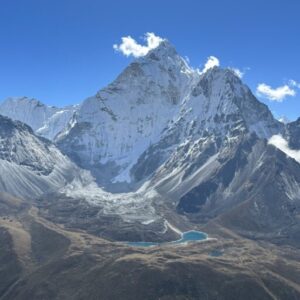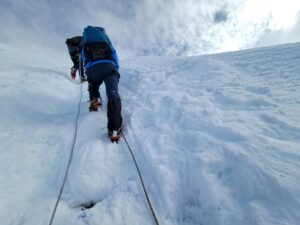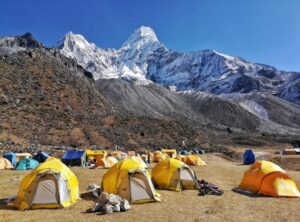+977-9851249774 Direct Call or WhatsApp 24/7
Everest Base Camp Trek
offering a perfect blend of adventure, breathtaking landscapes, and cultural immersion.
Best Time
March -May &
September – December
Trip Duration
14 Days
Accommodation
Hotel/Teahouse
Maximum Elevation
5,364 m. /17,598 ft.
Trip Difficulty
Moderate – Strenuous
- Trip Overview
- Trip Itinerary
- Include/Exclude
- FAQS
- Gallery
- Reviews
The Everest Base Camp (EBC) trek is more than just a physical journey—it’s a profound adventure through the heart of the Himalayas that immerses trekkers in breathtaking landscapes, rich culture, and a sense of unparalleled achievement. Starting in Lukla, the gateway to the Khumbu region, the trail winds through picturesque villages, dense forests, and over roaring rivers, eventually reaching the iconic base of the world’s tallest mountain, Mount Everest (8,848.86m). Along the way, trekkers pass vibrant Sherpa settlements like Namche Bazaar, the cultural and trading hub of the region, and Tengboche, home to a revered Buddhist monastery with a backdrop of Ama Dablam’s soaring peak. Each step brings a deeper connection to the region’s natural beauty, with vistas of Everest, Lhotse, and Nuptse becoming increasingly awe-inspiring as you ascend.
What makes the EBC trek truly special is the harmonious blend of natural wonder and human resilience. Trekkers experience the warmth and hospitality of the Sherpa people, who have adapted to life in one of the most challenging terrains on Earth. Acclimatization days in Namche Bazaar and Dingboche provide opportunities to explore local culture, from vibrant markets to centuries-old monasteries, while ensuring trekkers adjust to the thin air. The final stretch to Everest Base Camp, set against the stunning Khumbu Glacier and Icefall, offers a sense of accomplishment unmatched by other treks. The early morning hike to Kala Patthar rewards adventurers with unparalleled sunrise views of Everest, leaving an indelible mark on their memories.
Despite its challenges, including altitude and rugged trails, the Everest Base Camp trek is accessible to those with determination, moderate fitness, and proper preparation. Its appeal lies in the journey itself, where every moment—be it crossing a suspension bridge, sipping tea at a remote teahouse, or standing beneath the towering Himalayan giants—feels like a privilege. As you tread paths carved by countless adventurers and locals, you not only conquer physical boundaries but also connect with a timeless spirit of exploration. Whether you seek adventure, serenity, or inspiration, the EBC trek promises an unforgettable odyssey to the roof of the world.
Day 1: Arrival in Kathmandu (1,400m)
Day 2: Fly to Lukla (2,860m) and Trek to Phakding (2,610m)
Include Services;
Airport transfer on arrival and departure by private vehicles,
Meals on a full-board basis (Breakfast, Lunch, and Dinner, the main course) during the trek
with a cup of tea,
One highly experienced government-licensed, English-speaking local guide covers flight,
insurance and accommodations,
All the necessary documents such as national park Fees, climbing permits, TIMS card
(Trekking Information Management System) and local government permits,
Accommodation ,Trekking lodges or tea houses and tent during the trek,
Round trip flight from Kathmandu – Lukla – Kathmandu including applicable departure taxes,
Seasonal available fresh fruits dessert every evening after dinner,
Welcome or Farewell Dinner at a typical Nepalese restaurant with traditional performances,
A basic first-aid box
Emergency rescue operation assistance will be arranged in case of complex health
conditions (funded by your Travel Insurance)
All government, Local taxes/ vat, and official Expenses.
Exclude Services;
Nepal entry visa fees (You can obtain a visa quickly upon your arrival at Tribhuvan International Airport in Kathmandu, Nepal).
Extra accommodation and meals before and after the trek
International airfare
Personal expenses such as shopping, hot and cold drinks, hot shower, hard and soft alcohols,
snacks, hot and cold water, Wi-Fi, battery re-charge fee, and extra porter
Travel insurance – insurance has to cover emergency high-altitude rescue and evacuation
Personal clothes and trekking gears/equipment’s,
Additional costs, itinerary modifications, or delays caused by out of management control
due to the weather condition, illness, change of government policies, strikes, physical
condition, etc.
Tipping and Gratitude to the guides and staff (Recommended by Nepali culture )
Any other expenses that are not mentioned in the Price “inclusive section” of this program
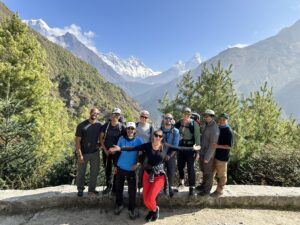
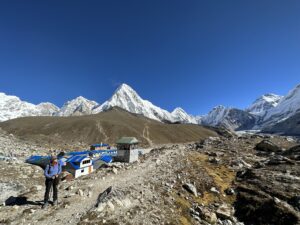
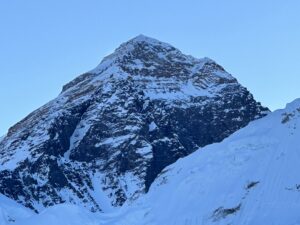
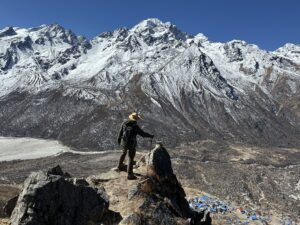
Trip Overview
The Everest Base Camp (EBC) trek is more than just a physical journey—it’s a profound adventure through the heart of the Himalayas that immerses trekkers in breathtaking landscapes, rich culture, and a sense of unparalleled achievement. Starting in Lukla, the gateway to the Khumbu region, the trail winds through picturesque villages, dense forests, and over roaring rivers, eventually reaching the iconic base of the world’s tallest mountain, Mount Everest (8,848.86m). Along the way, trekkers pass vibrant Sherpa settlements like Namche Bazaar, the cultural and trading hub of the region, and Tengboche, home to a revered Buddhist monastery with a backdrop of Ama Dablam’s soaring peak. Each step brings a deeper connection to the region’s natural beauty, with vistas of Everest, Lhotse, and Nuptse becoming increasingly awe-inspiring as you ascend.
What makes the EBC trek truly special is the harmonious blend of natural wonder and human resilience. Trekkers experience the warmth and hospitality of the Sherpa people, who have adapted to life in one of the most challenging terrains on Earth. Acclimatization days in Namche Bazaar and Dingboche provide opportunities to explore local culture, from vibrant markets to centuries-old monasteries, while ensuring trekkers adjust to the thin air. The final stretch to Everest Base Camp, set against the stunning Khumbu Glacier and Icefall, offers a sense of accomplishment unmatched by other treks. The early morning hike to Kala Patthar rewards adventurers with unparalleled sunrise views of Everest, leaving an indelible mark on their memories.
Despite its challenges, including altitude and rugged trails, the Everest Base Camp trek is accessible to those with determination, moderate fitness, and proper preparation. Its appeal lies in the journey itself, where every moment—be it crossing a suspension bridge, sipping tea at a remote teahouse, or standing beneath the towering Himalayan giants—feels like a privilege. As you tread paths carved by countless adventurers and locals, you not only conquer physical boundaries but also connect with a timeless spirit of exploration. Whether you seek adventure, serenity, or inspiration, the EBC trek promises an unforgettable odyssey to the roof of the world.
Trip Itinerary
Finale departure to home or extend the trip.
Include Services:
- Airport transfer on arrival and departure by private vehicles.
- Meals on a full-board basis (Breakfast, Lunch, and Dinner, the main course) during the trek with a cup of tea,
- One highly experienced government-licensed, English-speaking local guide covers flight, insurance and accommodations,
- All the necessary documents such as national park Fees, climbing permits, TIMS card (Trekking Information Management System) and local government permits,
- Accommodation ,Trekking lodges or tea houses during the trek,
- Round trip flight from Kathmandu – Lukla - Kathmandu including applicable departure taxes,
- Seasonal available fresh fruits dessert every evening after dinner,
- Welcome or Farewell Dinner at a typical Nepalese restaurant with traditional performances,
- A basic first-aid kid
- Emergency rescue operation assistance will be arranged in case of complex health conditions (funded by your Travel Insurance)
- All government, Local taxes/ vat, and official Expenses
Exclude Services:
- International airfare.
- Nepal entry visa fees (You can obtain a visa quickly upon your arrival at Tribhuvan International Airport in Kathmandu, Nepal).
- Extra accommodation and meals before and after the trek,
- Personal expenses such as shopping, hot and cold drinks, hot shower, hard and soft alcohols, snacks, hot and cold water, Wi-Fi, battery re-charge fee, and extra porter,
- Travel insurance - insurance has to cover emergency high-altitude rescue and evacuation,
- Personal clothes and trekking gears/equipment’s,
- Additional costs, itinerary modifications, or delays caused by out of management control due to the weather condition, illness, change of government policies, strikes, physical condition, etc.
- Tipping and Gratitude to the guides and staff (Recommended by Nepali culture )
- Any other expenses that are not mentioned in the Price "inclusive section" of this program,
FAQS
The Everest Base Camp trek is a high-altitude trek to the base of the world’s tallest mountain, offering breathtaking views of the Himalayas and insights into Sherpa culture.
The best time is during spring (March to May) and autumn (September to November) when the weather is stable, skies are clear, and temperatures are moderate.
The trek is considered moderately difficult. While no technical climbing is required, the trail involves steep ascents, long walking hours (5–7 hours per day), and high altitude, which can be challenging.
The standard EBC trek takes 12–14 days, including acclimatization days. This timeframe ensures proper adaptation to the altitude.
The round-trip distance is approximately 130 kilometers (81 miles), starting and ending in Lukla.
While prior trekking experience is not mandatory, a good level of physical fitness and endurance is essential. Training with cardio, strength, and stamina-building exercises is recommended.
The highest point is Kala Patthar (5,545m), which offers the best panoramic views of Everest and the surrounding peaks. 5,364 m is the elevation of Everest Base Camp.
Highly recommended guide and porter for safety and convenience.
Accommodation consists of teahouses offering basic amenities, including shared rooms, simple meals, and communal toilets. Facilities become more basic as you ascend.
Yes, highly recommended! Travel insurance that covers high-altitude trekking (up to 6,000m) and emergency evacuation is essential.
- Ascend gradually and include acclimatization days. Stay hydrated and avoid alcohol.
- Recognize symptoms like headaches, nausea, or dizziness, and descend if necessary.
- Consult with your team leader, guide for support, and consider carrying medications.
- Warm clothing (layers, down jacket, thermals).
- Sturdy trekking boots.Sleeping bag (rated for -10°C).
- Trekking poles, gloves, hat, and sunglasses.
- First-aid kit, water purification tablets, and energy snacks, for details highly recommend to visit our gear check list, www.pinncaletrek.com/trekking/gearlist.
The trek is generally safe when undertaken with proper preparation, guides, and acclimatization. Helicopter evacuation is available in emergencies.
Yes, bottled water and refill stations are available, but it’s best to use water purification tablets or a filter to reduce plastic waste.
Yes, Wi-Fi is available at most teahouses (for a fee), but it may be slow and unreliable at higher altitudes. Nepal Tele-come (NTC) mobile network offer coverage in some areas, but signal strength varies.
Yes, teahouses provide charging facilities (for a fee), but availability decreases at higher altitudes.
Budgets vary but typically range from $20–$25, depends on personalities.
Temperatures can range from 15°C (59°F) during the day to -10°C (14°F) or colder at night, depending on altitude and season.
Our Trip Gallery
What Our Clients Say

Adam Smith

Jhon Deo

Maria Mak

Jackma Kalin

Amily Moalin

Enagol Ame
Similar Trips
You Might Interest

Everest Panorama Trek
Click edit button to change this text. Lorem ipsum dolor sit amet, consectetur adipiscing elit. Ut elit tellus, luctus nec ullamcorper mattis, pulvinar dapibus leo.

Everest-Gokyo-Lake Trek
Click edit button to change this text. Lorem ipsum dolor sit amet, consectetur adipiscing elit. Ut elit tellus, luctus nec ullamcorper mattis, pulvinar dapibus leo.
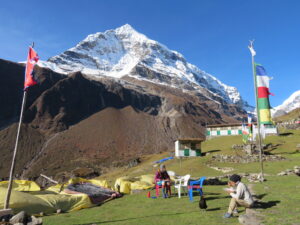
Makalu Base Camp Trek
Click edit button to change this text. Lorem ipsum dolor sit amet, consectetur adipiscing elit. Ut elit tellus, luctus nec ullamcorper mattis, pulvinar dapibus leo.
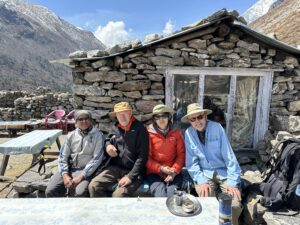
Lagntang Valley Trek
Click edit button to change this text. Lorem ipsum dolor sit amet, consectetur adipiscing elit. Ut elit tellus, luctus nec ullamcorper mattis, pulvinar dapibus leo.
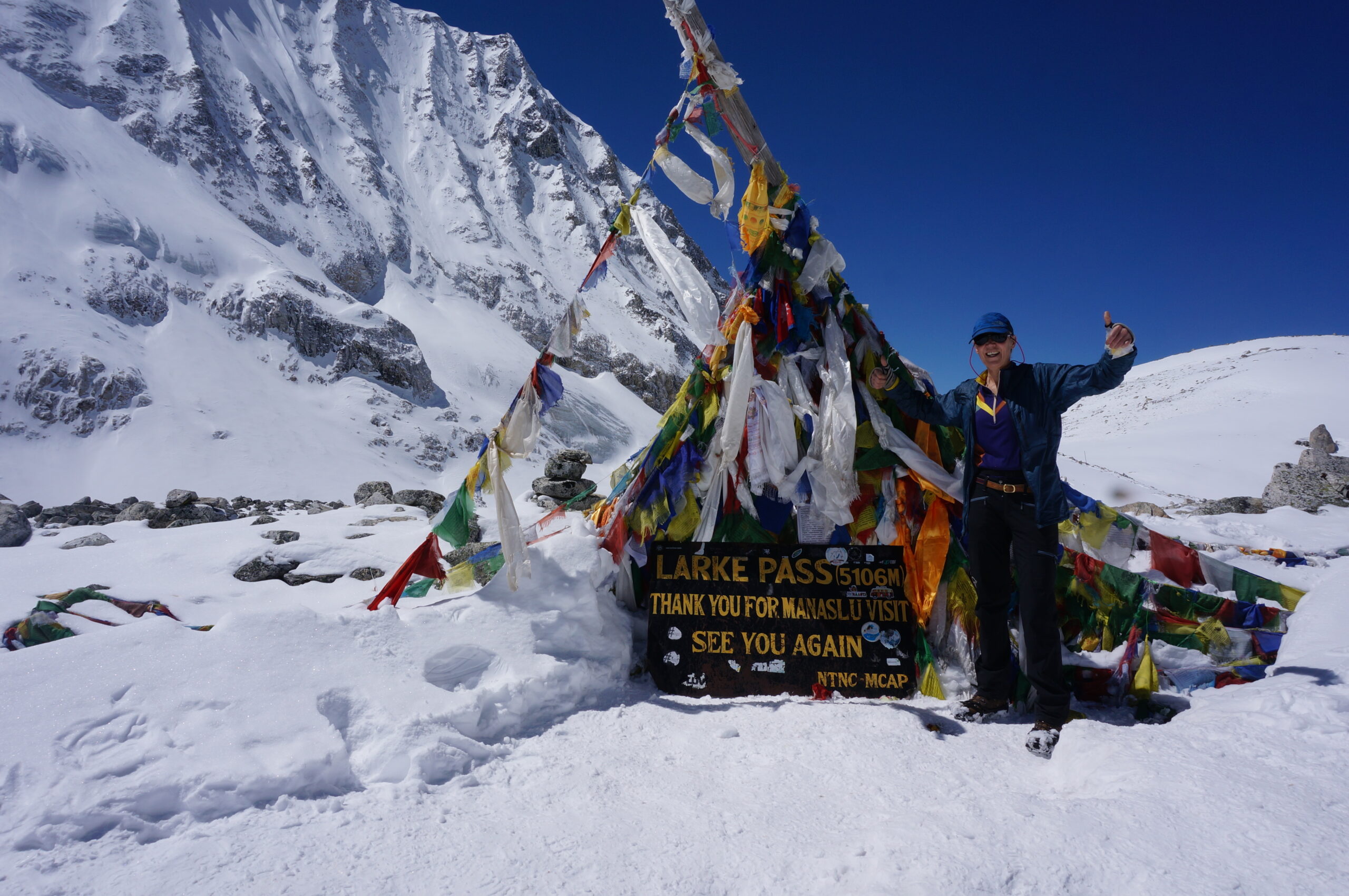
Manaslu Circuit Trek
Click edit button to change this text. Lorem ipsum dolor sit amet, consectetur adipiscing elit. Ut elit tellus, luctus nec ullamcorper mattis, pulvinar dapibus leo.
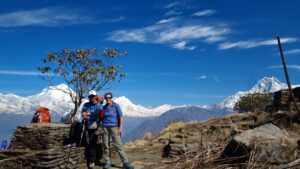
Khopra Ridge Trek
Click edit button to change this text. Lorem ipsum dolor sit amet, consectetur adipiscing elit. Ut elit tellus, luctus nec ullamcorper mattis, pulvinar dapibus leo.
Latest Trip Blogs
-
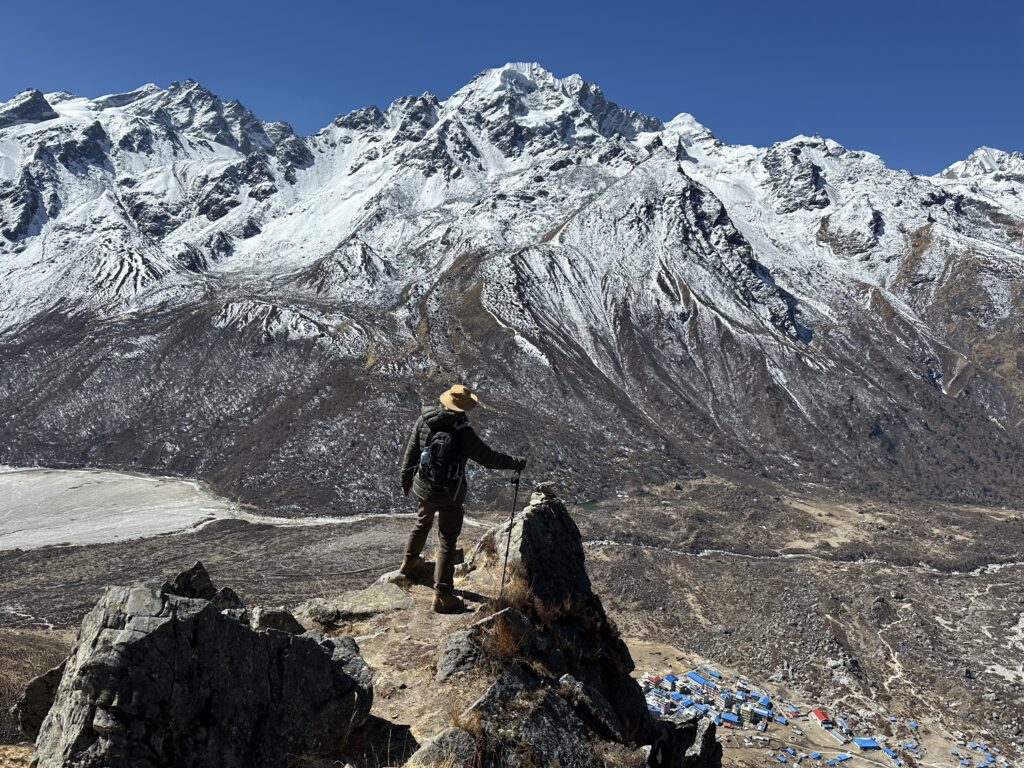
-

Langtang Valley Trek
Click edit button to change this text. Lorem ipsum dolor sit amet, consectetur adipiscing elit. Ut elit tellus, luctus nec ullamcorper mattis, pulvinar dapibus leo.
-
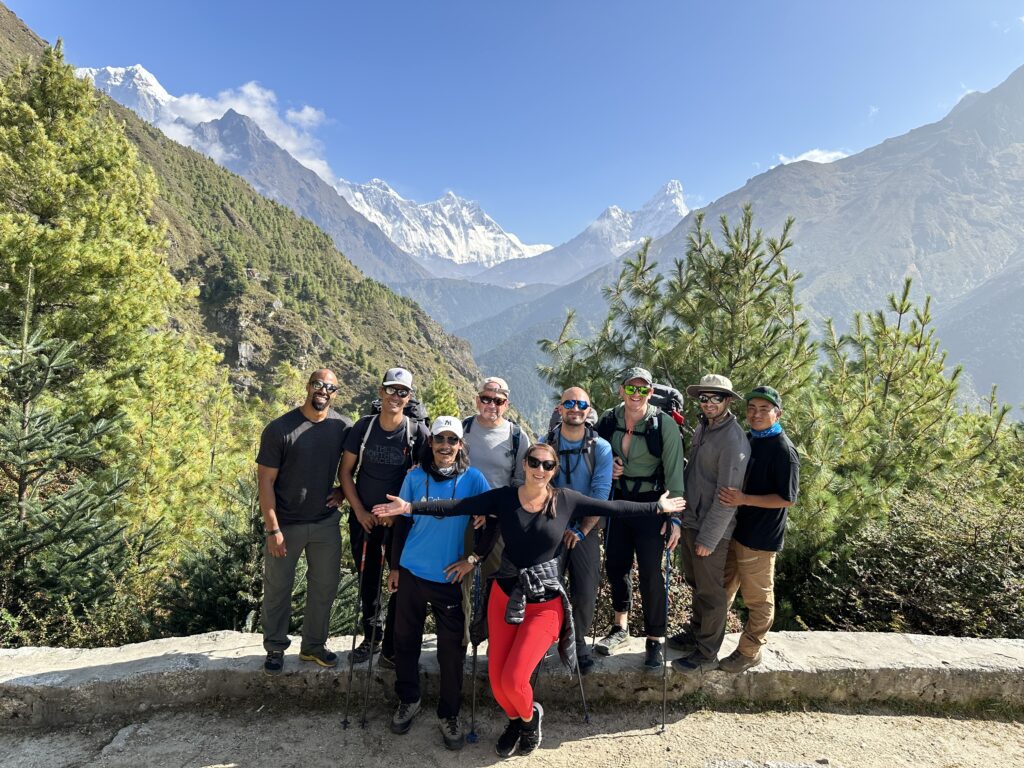
-

Gokyo-Lake Trek
Click edit button to change this text. Lorem ipsum dolor sit amet, consectetur adipiscing elit. Ut elit tellus, luctus nec ullamcorper mattis, pulvinar dapibus leo.
-
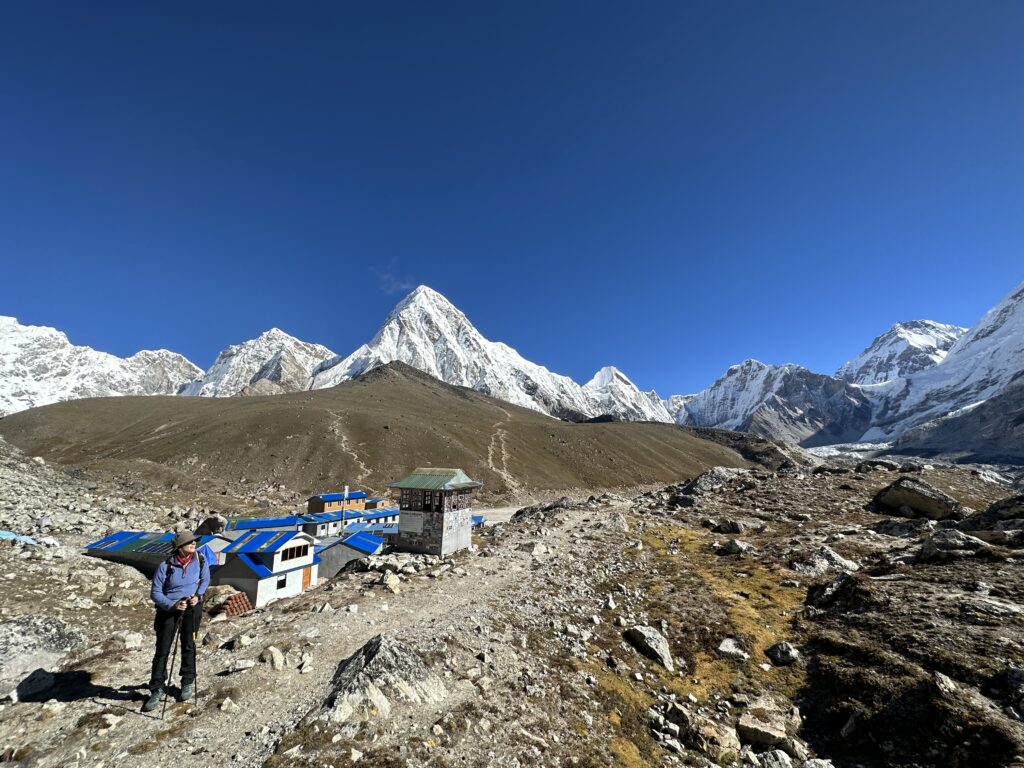
-

Everest Base Camp Trek
Click edit button to change this text. Lorem ipsum dolor sit amet, consectetur adipiscing elit. Ut elit tellus, luctus nec ullamcorper mattis, pulvinar dapibus leo.
-
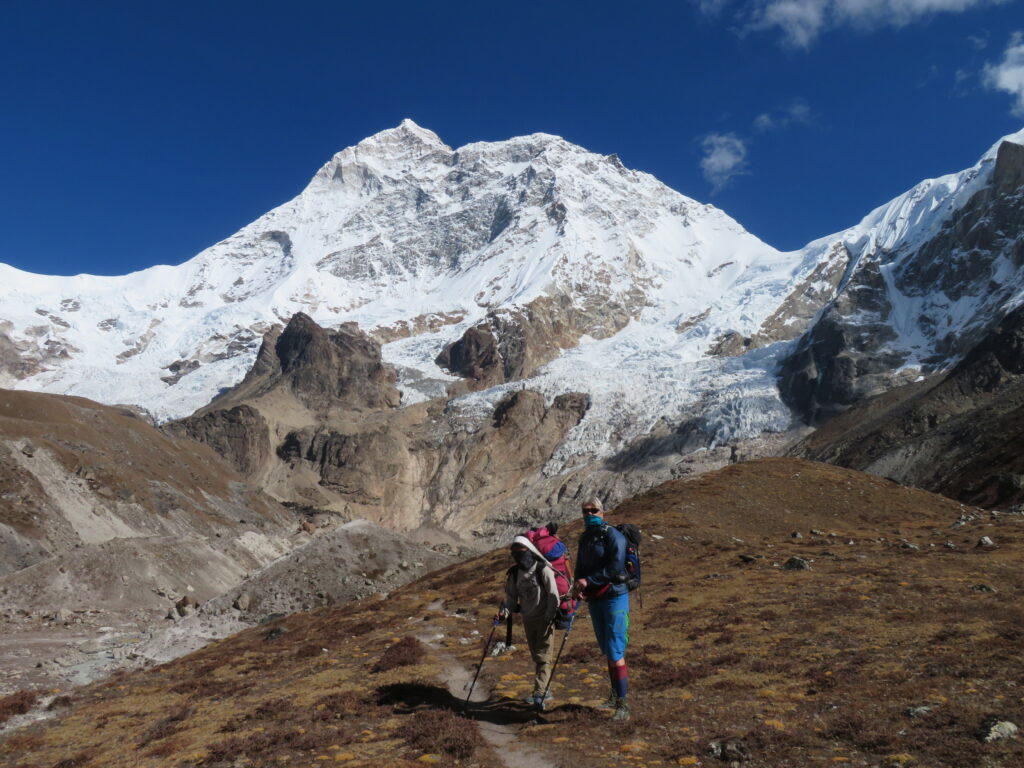
-

Makalu Base Camp Trek
Click edit button to change this text. Lorem ipsum dolor sit amet, consectetur adipiscing elit. Ut elit tellus, luctus nec ullamcorper mattis, pulvinar dapibus leo.
-
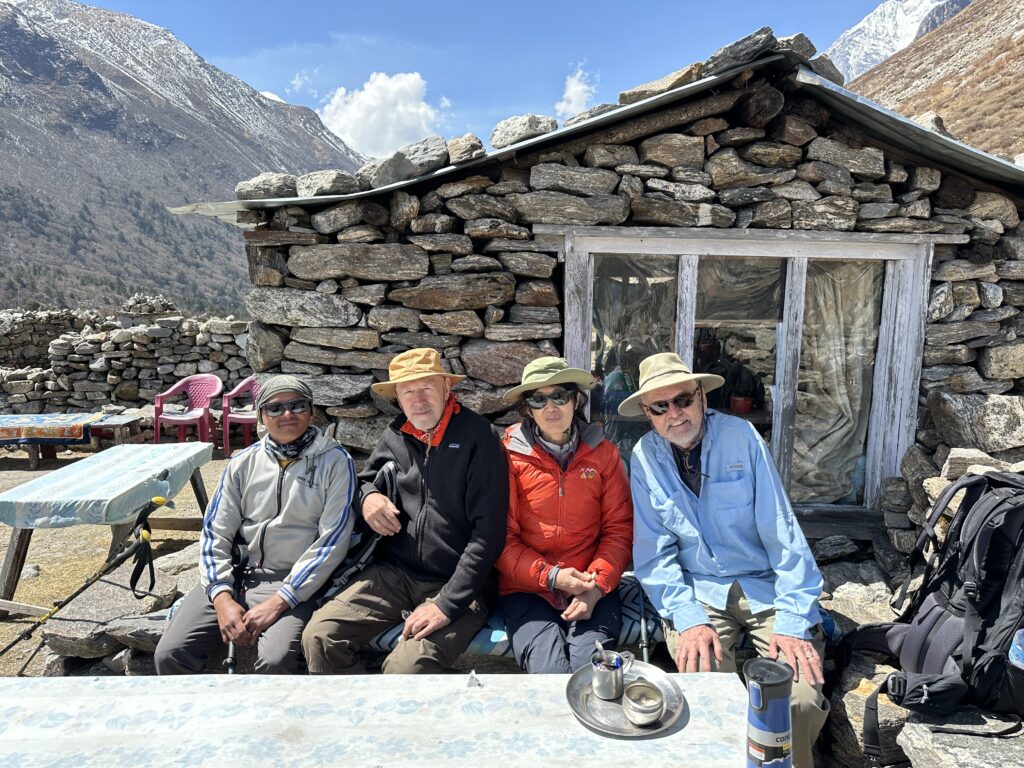
-

Tsum-Hidden Valley Trek
Click edit button to change this text. Lorem ipsum dolor sit amet, consectetur adipiscing elit. Ut elit tellus, luctus nec ullamcorper mattis, pulvinar dapibus leo.
-
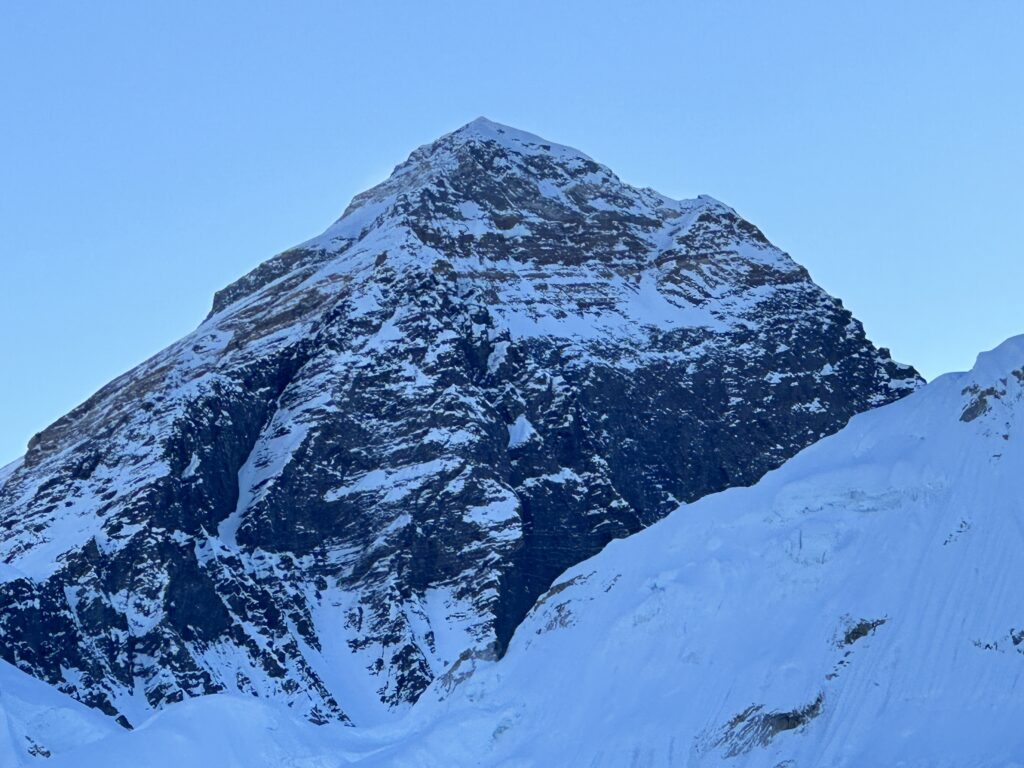
-

Everest Panorama Trek
The Everest Base Camp (EBC) trek is more than just a physical journey—it’s a profound adventure through the heart of the Himalayas that immerses trekkers in breathtaking landscapes, rich culture, and a sense of unparalleled achievement. Starting in Lukla, the gateway to the Khumbu region, the trail winds through picturesque villages, dense forests, and over roaring rivers, eventually reaching the iconic base of the world’s tallest mountain, Mount Everest (8,848.86m).

